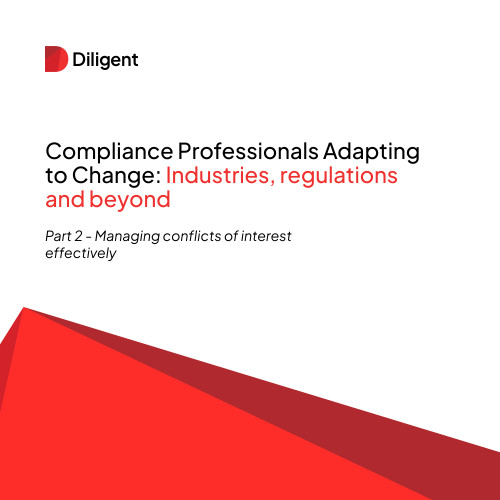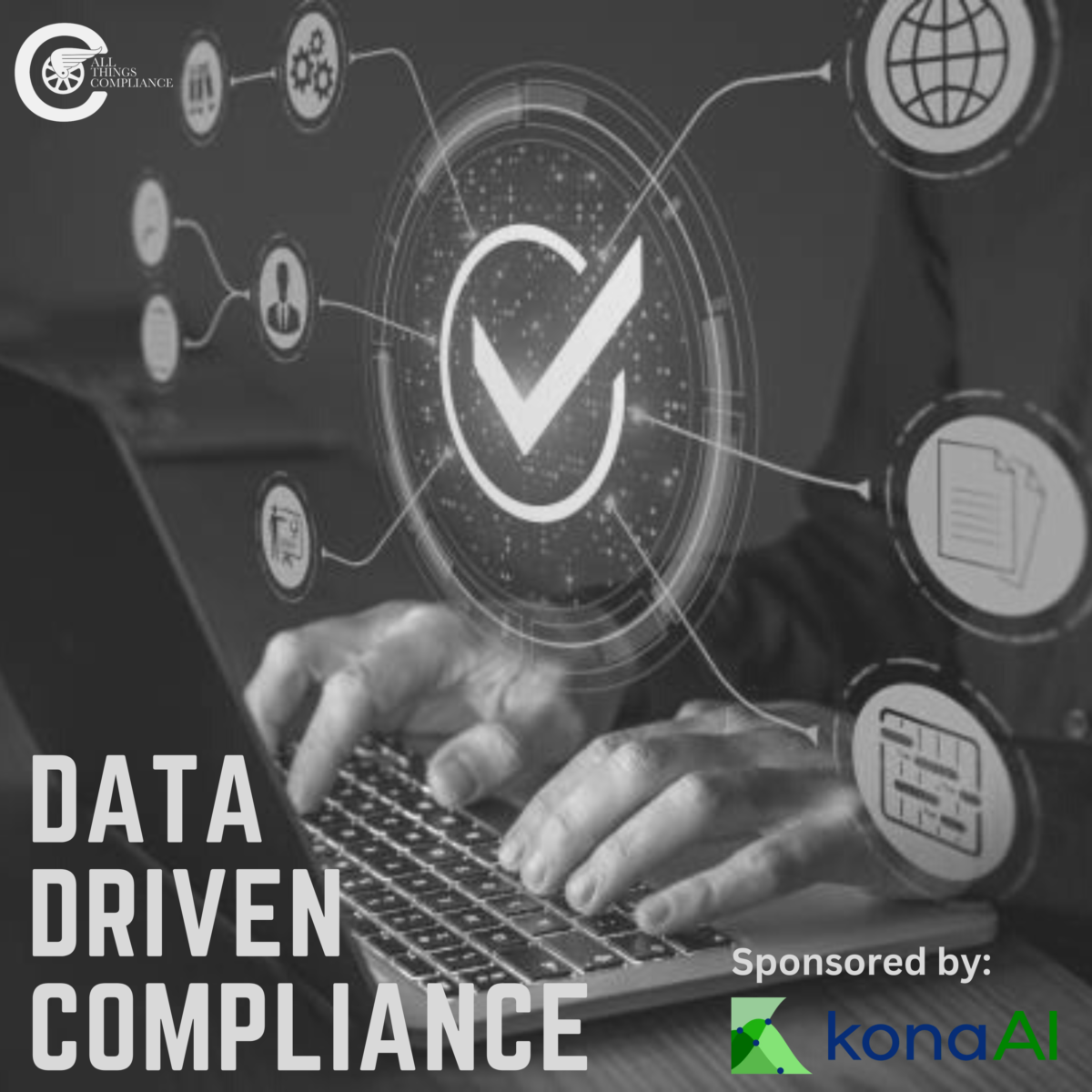I recently had the opportunity to visit with folks from Diligent. We look down the road at key issues in 2024 in a podcast series sponsored by Diligent entitled Compliance Professionals Adapting to Change: Industries, Regulations, and Beyond. I could chat with Nicholas Latham, Renee Murphy, Jessica Czeczuga, Yee Chow, and Alexander Cotoia. Over this series, we discussed compliance communications in regulated industries, managing conflicts of interest at the Board level, the Board’s role in compliance training and communications, navigating the current ESG landscape, and professional growth and mentorship in compliance. In this Post 2, we discuss the conflicts of interest at the Board of Directors and the Board’s role at the ESG level with Renee Murphy.
Conflicts of interest at the board level can have serious implications for companies, requiring careful management and proactive measures to ensure ethical functioning. Board-level conflicts of interest can arise when board members sit on multiple boards or engage in self-dealing. These conflicts can lead to questions of fairness and potential harm to the company. For example, a CEO whose time is divided among multiple companies may not be able to provide fair attention to each organization, creating a conflict of interest for shareholders. Additionally, self-dealing at the board level, such as funneling company funds to entities owned by board members, can harm the company’s financial health.
To mitigate these conflicts, board members should establish clear boundaries and implement board management software for transparency and accountability. This software enables effective communication and decision-making, allowing boards to address conflicts promptly and ensure ethical operations. Compliance and risk management officials play a vital role in board governance by providing the board with an understanding of legal and regulatory risks and preventing conflicts of interest. These officials enable efficient risk management and compliance processes by utilizing governance software.
The implementation of ESG practices is another crucial aspect of board governance. ESG considers environmental, social, and governance factors in business operations. Companies are advised to select a framework and start disclosing their ESG information. Failure to do so can hinder access to capital and affect long-term risk management. While ESG practices are not currently mandated by the SEC, they are increasingly demanded by banks, customers, and third parties. Therefore, companies have no choice but to disclose their ESG practices to meet stakeholder expectations.
Balancing board-level conflicts of interest and ESG practices involves tradeoffs and challenges. On one hand, addressing conflicts of interest requires strict oversight and accountability to ensure fair decision-making. On the other hand, implementing ESG practices requires companies to consider their environmental and social impact, which may involve additional costs and changes to existing operations. Finding the right balance between these factors is crucial for organizations to maintain ethical operations while meeting stakeholder expectations.
The importance of considering the impact on decision-making cannot be overstated. Conflicts of interest and the lack of ESG practices can lead to financial losses, reputational damage, and legal consequences. By proactively managing conflicts and implementing ESG practices, companies can enhance their long-term sustainability and mitigate risks. Compliance and risk management officials and board members play a pivotal role in ensuring that ethical considerations are prioritized in decision-making processes.
Managing board-level conflicts of interest and implementing ESG practices are critical aspects of board governance. Companies can enhance transparency, accountability, and ethical functioning by establishing clear boundaries, utilizing board management software, and disclosing ESG information. Balancing these factors involves tradeoffs and challenges, but the impact on decision-making and the long-term success of organizations cannot be ignored. With the guidance of compliance and risk management officials, boards can navigate these complexities and ensure ethical operations for the benefit of all stakeholders.
Ready for Purpose-Driven Compliance? Diligent equips leaders with the tools to build, monitor, and maintain an open, transparent ethics and compliance culture. For more information and to book a demo, visit Diligent.com
Join us tomorrow as we consider the role of the Board of Directors in compliance training and communications.










